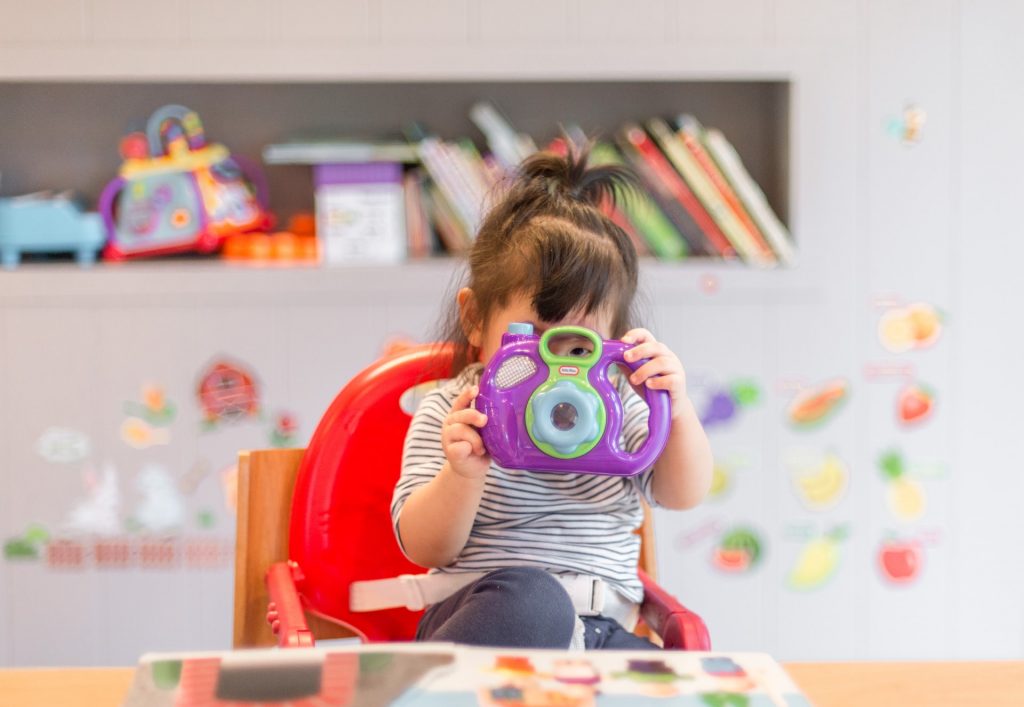If you thought only adulthood was stressful and laden with responsibilities, think again. Kids today are faced with multi-dimensional challenges on a daily basis. Some manage brilliantly, while others crumble under pressure. Ever wondered why?
Here’s the good news!
Resilience can be learned.
Read on to discover 5 actionable tips for raising resilient children.

#1. Stop being your child’s risk eliminator
Parents today believe they need to shield and eliminate every risk that comes their way. While the urge to keep the child safe is natural, mitigating all risks is not.
It is through age-appropriate risks that learning and skill building takes place. Certain risks are a part of your child’s natural growth. Do not take away your child’s opportunity to learn.
Let your toddler play, get dirty, and fall in the park. Let your preteen learn to look after himself. Let your adolescent deal with difficult situations at school. Guide them, be there for them but do not always be ready with a quick solution.
Allow limited and age-appropriate risk exposure to help your children learn vital life skills. Give them a certain degree of freedom to make them aware of the boundaries.
#2. Let them play

When it comes to playtime, parents often confuse it with guided or structured playtime. Many find unstructured playtime frivolous and unnecessary.
However, on the contrary, when we allow kids to play by themselves, among themselves, we help foster the skills of creativity and problem solving.
Playtime builds competencies that help manage emotions related to jealousy, stress, fear, and pressure. Unstructured playtime helps children understand their strengths and work on their weaknesses helping us with raising resilient children.

#3. Problem solving through specifics and options
When your child is stressed, do not pass generalized remarks. “Oh! You will manage just fine on stage!” or “Just give it back to whosoever bullies you!”. Well, that answers none of your child’s worries.
Instead sit them down and help them break down their emotions into specific concerns. Ask questions about what exactly is bothering them, ease the nervousness, and then brainstorm to figure out possible solutions.
Ask — “What are you most worried about?” and then discuss — “Do you think taking deep breaths eases your nervousness” or “Can you practice in front of the mirror?”
To raise a resilient child teach him or her to breakdown a problem into specific concerns and work out available options in order to get out of a situation. Do not provide ready-made solutions.
#4. Building Positive Emotions

It is important for parents to reassure their children that being emotional is alright. It is how we manage our emotions eventually is what matters.
Whether it is anger, jealousy, sorrow, or happiness, they are all normal emotions that stem from feelings. It is normal to feel. However, a resilient child is able to manage feelings and regulate emotions before taking any action.

#5. Encouraging and Inculcating A Growth Mindset
Parents often get stuck with the child’s present inabilities. However, if we first understand and then teach the child that knowledge and skills are ever-changing, we are sure to have kids who are willing to work harder.
It is important to teach children that failure only paves way for success, provided we are ready to work on our abilities. Equip them with the knowledge that the mind and our skills can grow if we make an effort towards improvement.
Parents working towards raising resilient children know how to praise efforts over results.
Every lesson learnt, every tune mastered, every box colored correctly, every effort made towards improvement needs acknowledgement and encouragement. This helps build a growth mindset in your child, one that motivates to better oneself.
Remember, a resilient child will be able to navigate through the triumphs and trials of life with a well-balanced mindset. This may not make the transition into adolescence and adulthood seamless, but it will certainly equip your child with the required skill set to deal with whatever comes their way.